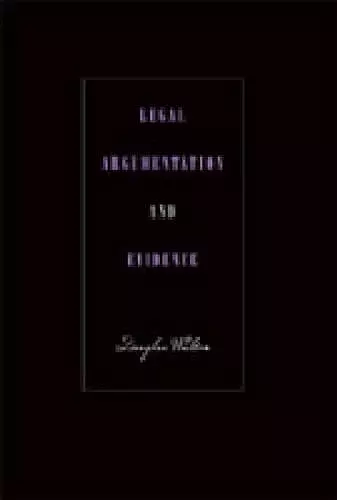Legal Argumentation and Evidence
Format:Hardback
Publisher:Pennsylvania State University Press
Published:25th Oct '02
Currently unavailable, and unfortunately no date known when it will be back
This hardback is available in another edition too:
- Paperback£49.95(9780271058351)

A leading expert in informal logic, Douglas Walton turns his attention in this new book to how reasoning operates in trials and other legal contexts, with special emphasis on the law of evidence. The new model he develops, drawing on methods of argumentation theory that are gaining wide acceptance in computing fields like artificial intelligence, can be used to identify, analyze, and evaluate specific types of legal argument. In contrast with approaches that rely on deductive and inductive logic and rule out many common types of argument as fallacious, Walton’s aim is to provide a more expansive view of what can be considered "reasonable" in legal argument when it is construed as a dynamic, rule-governed, and goal-directed conversation. This dialogical model gives new meaning to the key notions of relevance and probative weight, with the latter analyzed in terms of pragmatic criteria for what constitutes plausible evidence rather than truth.
“In this book Douglas Walton builds on his earlier research and shows how it has application to many of the difficult questions that arise in legal reasoning. He brings a dialectical theory of argumentation as well as a theory of plausible reasoning to bear on the traditional problems of legal evidence. Legal Argumentation and Evidence is an original and important contribution not only to legal reasoning but also to the development of argumentation theory, critical thinking, and reasoning in general. It will be of interest to legal scholars but also to argumentation and reasoning theorists who want to keep abreast of the most recent developments in the field.”
—Hans V. Hansen, University of Windsor
“Walton makes a significant contribution to the understanding of legal argumentation and to the concept of relevance in evidence law. He goes beyond formal logic and adds an analysis of abduction and plausible inference to fill gaps in what a deductive system can accomplish. The resulting theory provides an important insight into the relationships among the steps of a legal argument. The dialogue structure on which it is based should prove to be of great value in understanding strategy, either for the advocate, the evaluator of evidence, or the student of the legal process.”
—Kevin Saunders, University of Oklahoma Law School
“Impressively researched and clearly written, this book is a notable contribution to the study of legal argumentation.”
—Derek Allen University of Toronto Quarterly
ISBN: 9780271021775
Dimensions: 229mm x 152mm x 35mm
Weight: 739g
392 pages